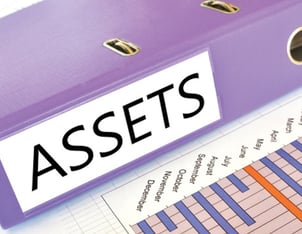Depreciation in Businesses and Taxes
Written by Eddy Hood
 If you own a business, you understand how stressful it can be to complete your taxes every year. As if it weren't confusing enough, there are certain aspects of filing your business's taxes that can be even more difficult to understand, like depreciation. As a small business owner, you may be wondering "What does depreciation mean?" Luckily, the experts at Ignite Spot have an understanding of depreciation in business and in taxes and are prepared to help you with all of your business's needs. Read on to learn more about depreciation and your business, and how Ignite Spot can help you today.
If you own a business, you understand how stressful it can be to complete your taxes every year. As if it weren't confusing enough, there are certain aspects of filing your business's taxes that can be even more difficult to understand, like depreciation. As a small business owner, you may be wondering "What does depreciation mean?" Luckily, the experts at Ignite Spot have an understanding of depreciation in business and in taxes and are prepared to help you with all of your business's needs. Read on to learn more about depreciation and your business, and how Ignite Spot can help you today.
What does depreciation mean?
Depreciation is a type of income tax deduction where the taxpayer can recover the money previously spent on a piece of land or property. In its simplest terms, depreciation is a way of getting some money back on a property that has suffered general wear and tear or total obsolescence. A commercial building considered a depreciating asset. Other things commonly considered depreciating assets include machines or other types of equipment, vehicles, and furniture. Other materials that can go through asset depreciation are patents or copyrights, and these are also claimable as an income tax deduction.
How does depreciation work?
When a property or patent is placed in service for use in a commercial or business setting to generate income, the process of depreciation begins. When the property's cost has been fully repaid to the taxpayer or when the property has been retired from service, depreciation ends. For instance, with equipment depreciation, the money spent on the asset can be repaid to you through the time your business is utilizing the equipment to complete or offer a service.
When it comes to claiming depreciating property on your taxes, this must be done over the span of a few years, not all at once, in order to obtain a lump sum. Each year the depreciating property is in use, you can recover part of the cost. The depreciating asset you are claiming for a depreciation tax deduction must be related to your business, and cannot be any kind of personal property. If you are utilizing a property for both commercial and personal purposes, you must depreciate only the portion of the property used in the business setting.
As a general rule of thumb, if the property meets the following parameters, you may claim it for a tax deduction:
- The property must be owned by you
- The property must be used to produce income of some kind
- The property must have a life span or time of use that can be measured
- The property must not be used for business and disposed of or sold in the same year
At Ignite Spot, our goal is to help make your business profitable! Ignite Spot offers superior online outsourced accounting services for your small business. If your firm requires assistance with understanding and organizing bookkeeping records of depreciating company assets, we can help. Download our pricing sheet and contact one of the professionals at Ignite Spot today to find the solution that is right for you and your business.
Learn More About Similar Accounting Topics:
Understanding the Accrual Accounting Method
The Difference Between Cash Basis and Accrual Basis Accounting
The Purpose and Practice of The General Ledger
What is the Cash method of Accounting?
What is Activity Based Costing?
Affordable Care Act and Small Business Requirements
Generally Accepted Accounting Principles (GAAP)
Know Your Options in Small Business Finances
The Effects of Small Business Bankruptcy
How Do Small Business Loans Work?
The Importance of a Business Plan
Choosing the Best Small Business Credit Card
What is a Business Investment and How Should It Be Accounted For?
How Hard Is It To Get a Small Business Loan?
Understanding Different Entity Types
How Much Capital Is Needed to Start a Small Business?
Getting Involved in Business and Communicty Organizations
What are Business Liabilities?
What is Business and Financial Leverage?









.png)



